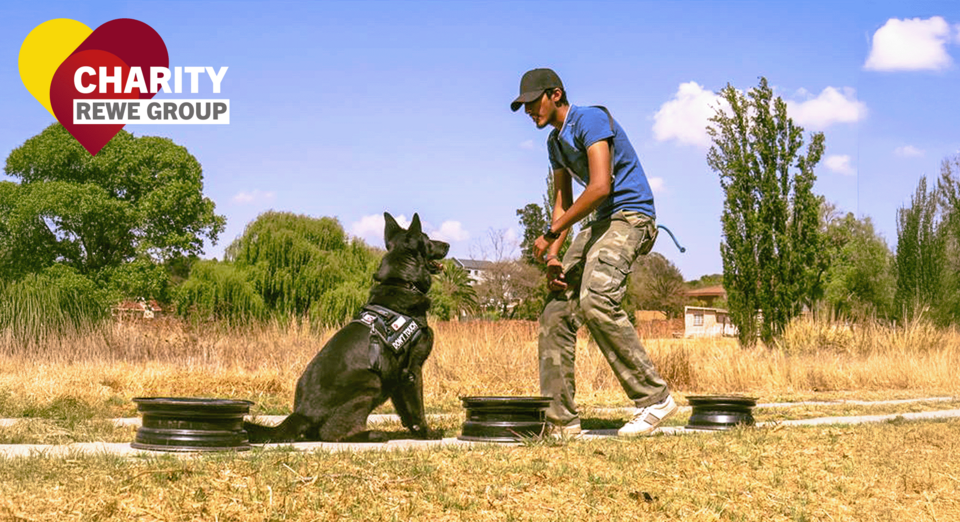
It has become a matter close to the hearts of DERTOUR employees: the Endangered Wildlife Trust (EWT) sniffer dog project to protect wild animals in southern Africa. The colleagues support the training of the furry friends with great donations. We spoke to Tammy Baker, Business Development Officer at EWT, about the incredible performance of the dogs and the importance of the project.
The DERTOUR Foundation has been supporting projects in tourism regions for exactly ten years. One of these is the Endangered Wildlife Trust (EWT), one of the largest and most renowned non-governmental organisations for the conservation of biodiversity in southern Africa.
Founded in 1973, the EWT's mission is to protect wildlife for the benefit of animals, people and nature in general. Since then, it has continuously expanded its efforts to conserve ecosystems and species in southern and eastern Africa.
An important aspect of the EWT strategy is the use of sniffer dogs. These specially trained dogs make an indispensable contribution to the fight against poaching. Thanks to the support of the DERTOUR Foundation, the EWT has been able to expand this programme to include an additional dog handler, a sniffer dog and a tracker dog, as well as medical care for them.
has been supporting social and ecological projects in tourism regions as a non-profit organisation through DERTOUR since 2014. With this step, DERTOUR, the internationally operating travel company of the REWE Group, recognises its social responsibility towards the people, nature and animals in the countries it travels to.
Sniffing out smuggled goods and firearms
South Africa's Pilanesberg National Park is home to a variety of wild animals, including the famous Big Five: elephants, rhinos, lions, leopards and buffalo. But the idyll is deceptive: the protected area is under constant threat from poachers who want to exploit its natural resources.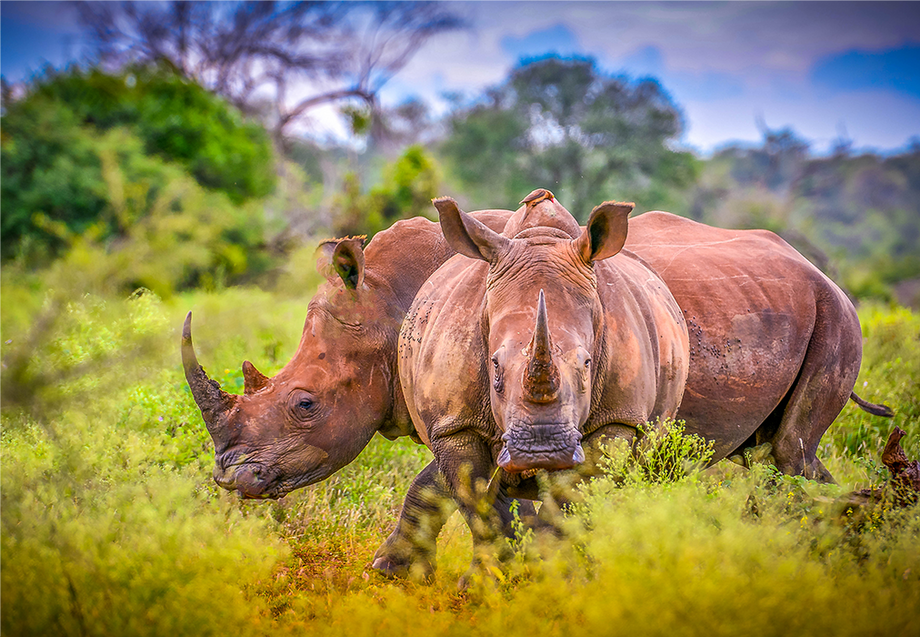 mauritz Janeke - Getty Images
mauritz Janeke - Getty Images
Conservation dogs are indispensable in the fight against them. The animals use their extraordinary sense of smell to sniff out various contraband, from rhino horn and ivory to firearms and ammunition. They can be seen daily with their handlers checking vehicles and patrolling the borders of the park. Even the difficult terrain and heavy traffic do not prevent the teams from working tirelessly.
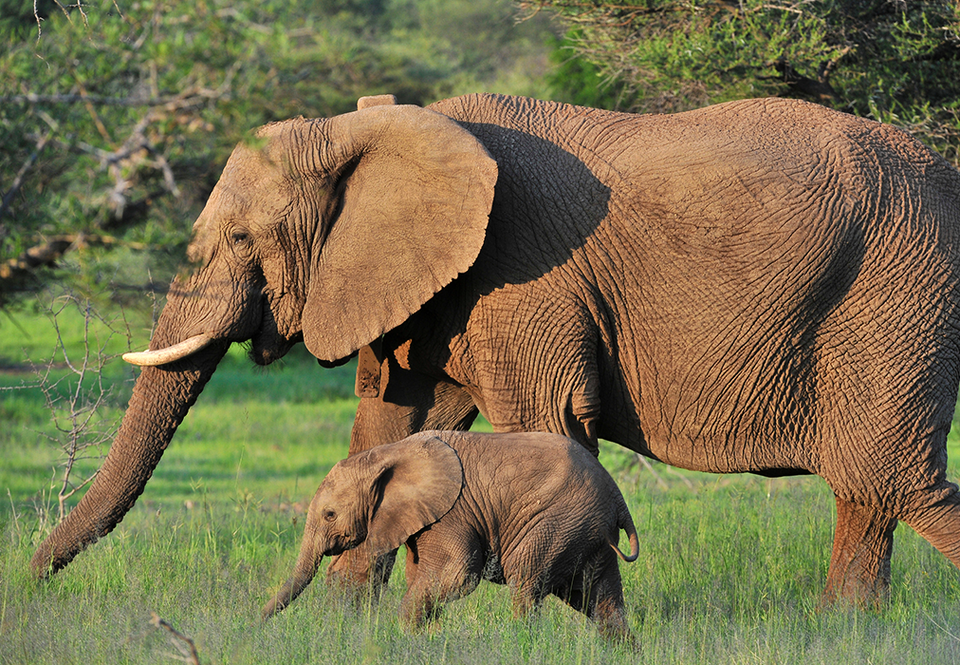
Tammy Baker, Business Development Officer at the Endangered Wildlife Trust, on the use of dogs to combat wildlife smuggling in southern Africa - and training for new threats such as the theft of rare plants.
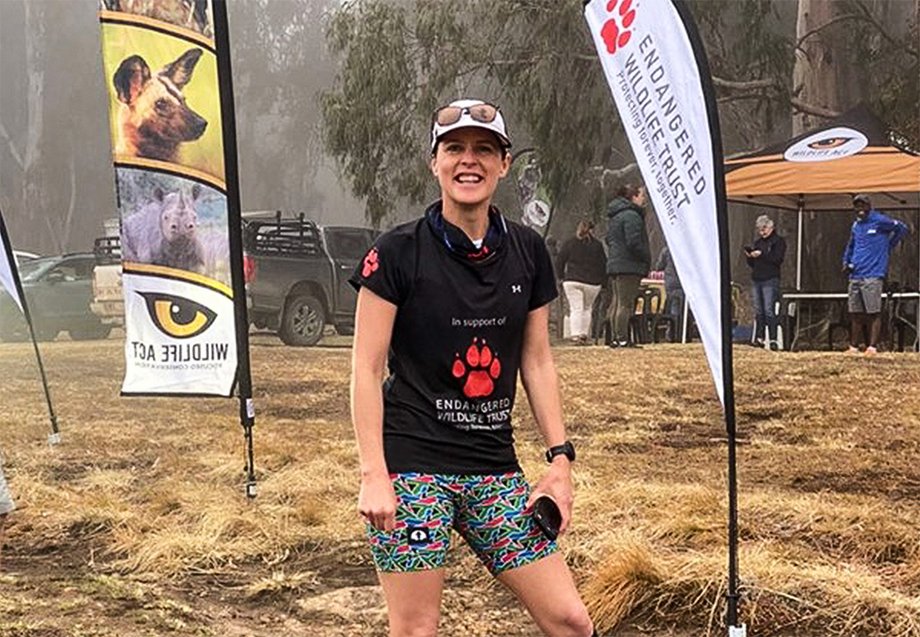 Tammy Baker ©EWT
one: The EWT recently celebrated its 50th anniversary. What has been the impact of your work over the years?
Tammy Baker ©EWT
one: The EWT recently celebrated its 50th anniversary. What has been the impact of your work over the years?
Tammy Baker : The 50th anniversary of our organisation is an important milestone for us. Over the years, our efforts have had a significant impact, particularly in curbing poaching and protecting endangered species. Our canine unit, established in 2012, has played a crucial role. These dogs support the anti-poaching initiatives in the game reserves and help to detect wildlife smuggling before the contraband leaves the country. This enables us to respond effectively to various threats.
„Our conservation dogs are invaluable. Each dog is trained to sniff out either poachers or contraband, and sometimes both.“ Tammy Baker
one: Can you tell us more about the role of conservation dogs in the EWT's initiatives?
Tammy Baker : Our conservation dogs are invaluable. Each dog is trained to sniff out either poachers or contraband, and sometimes both. The dogs work with their handlers to conduct vehicle searches and patrols. The partnership with DERTOUR Foundation has enabled us to place these dog units in critical areas where poaching is rampant. The handlers and the dogs form a close bond so that the welfare of the dogs is always paramount.
one: How do the dogs help prevent poaching, especially in difficult environments like the Pilanesberg Nature Reserve?
Tammy Baker : The Pilanesberg National Park is challenging due to its large area and difficult terrain. However, our dogs are trained to deal with such conditions. They can sniff out the smallest traces of wildlife and detect poachers throughout the reserve. The presence of these dogs acts as a great deterrent to poachers, as they know that the risk of being caught is much greater.
one: What new threats are emerging and how is the EWT adapting its strategies to address them?
Tammy Baker : One of the new threats we have identified is the increase in plant poaching of rare succulents, particularly Karoo succulents. In response, we have started training our sniffer dogs to identify these plants - with great success, which is an impressive testament to their flexibility and the broad range of their abilities.
We are also exploring the use of dogs to locate wire snares more efficiently. To this end, a repeatable experiment was conducted in the field, comparing the efficiency of rangers working alone with that of rangers working in a team with a sniffer dog and handler. Objects such as bottles, cans, rags, etc. were placed - in other words, anything that smelled of humans. The results were clear: the rangers identified between 10 and 20 per cent of the snares and objects placed, while the team of dog and dog handler accompanied by rangers found between 50 and 100 per cent.
„The bond between the handlers and the dogs is also remarkable, as they train together every day and protect each other.“ Tammy Baker
one: What makes working with sniffer and tracking dogs special for you and the team?
Tammy Baker : Working with detection and tracking dogs is incredibly rewarding. These dogs are highly skilled and show visible joy when they successfully indicate a target track. Their different working styles, from frantic searching to slow and careful control, are fascinating to watch. The bond between the handlers and the dogs is also remarkable, as they train together every day and protect each other. This partnership is crucial to the success of our conservation efforts.
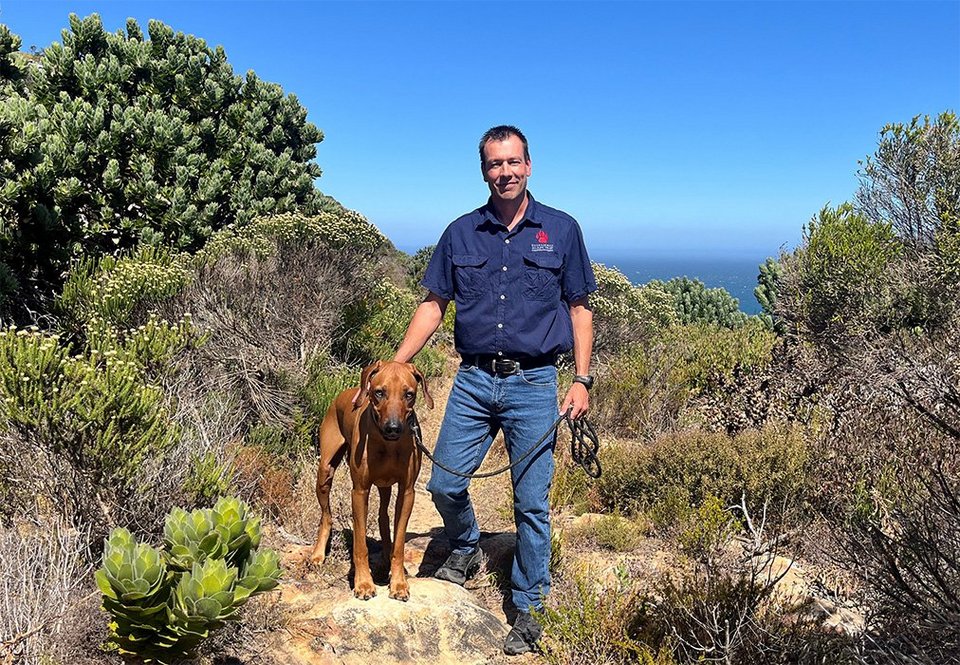
The sniffer dog project supported by the DERTOUR Group Foundation is part of REWE Group's four employee donation projects. Anyone wishing to support one of the projects with a monthly salary donation of 1, 5 or 10 euros can do so using the donation form.
You can find more answers to important questions about the employee donation projects here.







